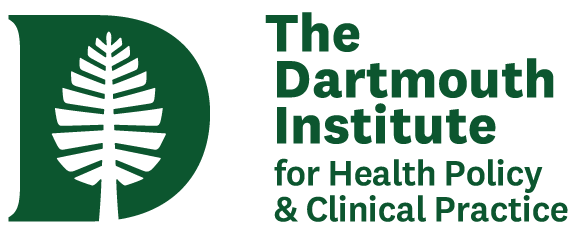Bio
William Nelson, PhD, MDiv is Director of the Ethics and Human Values Program; a Professor in The Dartmouth Institute for Health Policy and Clinical Practice and the Departments of Medical Education and Community and Family Medicine, at the Geisel School of Medicine at Dartmouth where he holds the Elizabeth DeCamp McInerny Professorship. He also is an adjunct Professor at New York University’s Wagner Graduate School of Public Service.
Dr. Nelson’s scholarly and teaching focuses on organizational, clinical, and public health ethics, especially regarding the relation between ethics, quality, and value in the delivery of health care. He teaches ethics courses in various Dartmouth Institute education programs, including, PH 130 in the on-campus Master’s in Public Health program and PH 222 in the online MPH program. Dr. Nelson also teaches an intensive ethics course in the Masters of Health Care Delivery Science (MHCDS).
In addition to teaching at the Institute, Dr. Nelson is the director of Geisel’s Ethics and Human Values Program that integrates ethics and medical humanities into the medical school’s four-year curriculum. Under Dr. Nelson’s leadership the program takes a comprehensive, approach, embedding topics from health care ethics, professionalism, medical humanities, and other related interdisciplinary areas within the medical school’s curriculum.
Previously, he served as the chief of ethics education for the Department of Veterans Affairs’ National Center of Health Care Ethics, which he co-founded.
Dr. Nelson is the author of over 120 articles plus many book chapters; he has delivered hundreds of invited lectures, papers in the US and internationally. Dr. Nelson is the co-editor (three editions) of Managing Ethically: An Executive’s Guide (Health Administrative Press). And is the editor of the NIH NLM funded 2009 book; Handbook for Rural Health Care Ethics: A Practical Guide for Professionals. He is a regular contributor to Healthcare Executive’s “Healthcare Management Ethics Column.”
Dr. Nelson is a recipient of many awards and honors, including the U.S. Congressional Excalibur Award for Public Service. In 2004, The Department of Veterans Affairs established the annual, competitive “William A. Nelson Award for Excellence in Health Care Ethics” for “significant and sustained contributions to the Department through health care ethics…” In 2006 Dr. Nelson was awarded an Honorary Doctorate of Humane Letters from his alma mater, Elmhurst University.
He received his MDiv from Andover-Newton Theological School and his PhD from Union Graduate School and University.
Published Research
Organizational Ethics in Healthcare: A National Survey.
Turner K, Lahey T, Gremmels B, Lesandrini J, Nelson WA
HEC Forum|2024 Jan 17
Applying the Peter Parker Principle to Healthcare.
Stahl JE, Nelson WA
Camb Q Healthc Ethics|2024 Apr
Building an Ethical Organizational Culture.
Nelson WA, Taylor E, Walsh T
Health Care Manag (Frederick)|2020 Oct/Dec
When Specialty Care Is Unavailable to Rural Families.
deSante-Bertkau JE, Shubkin CD, Nelson WA, Salter EK, Lantos JD
Pediatrics|2019 Dec
Patient-Centered Organizational Statements: Merely Rhetoric? A Survey of Health Care Leaders.
Nelson WA, Forcino RC, Elwyn G
Health Care Manag (Frederick)|2017 Oct/Dec
Courses Taught
PH 222:
Ethics in Health and Healthcare
(0.50 unit)
This course is designed to give students an overview of healthcare ethics, including recognizing and responding to contemporary clinical, research, and organizational ethical conflicts in health care. Students will build practical ethical reasoning skills and strategies for dealing with frequently encountered ethics issues, as well as approaches for anticipating and decreasing the presence of ethics conflicts. Emphasis throughout the course will be on critical thinking, real-world application, and ethical decision-making in a professional environment.
PH 130:
Practical Approaches for Today's Health Care Ethics Challenges (elective)
(0.50 unit)
This highly interactive, inter-professional elective emphasizes critical thinking, real-world application, and decision-making to clinical, research, public health, and organizational ethics issues. Students will build practical ethical reasoning skills by applying ethics principles through case study discussions regarding challenges faced by today’s health care professionals. Students will learn to use a systematic ethical analysis process to recognize, respond to, and prevent ethical conflicts to foster an ethically aligned organization.

